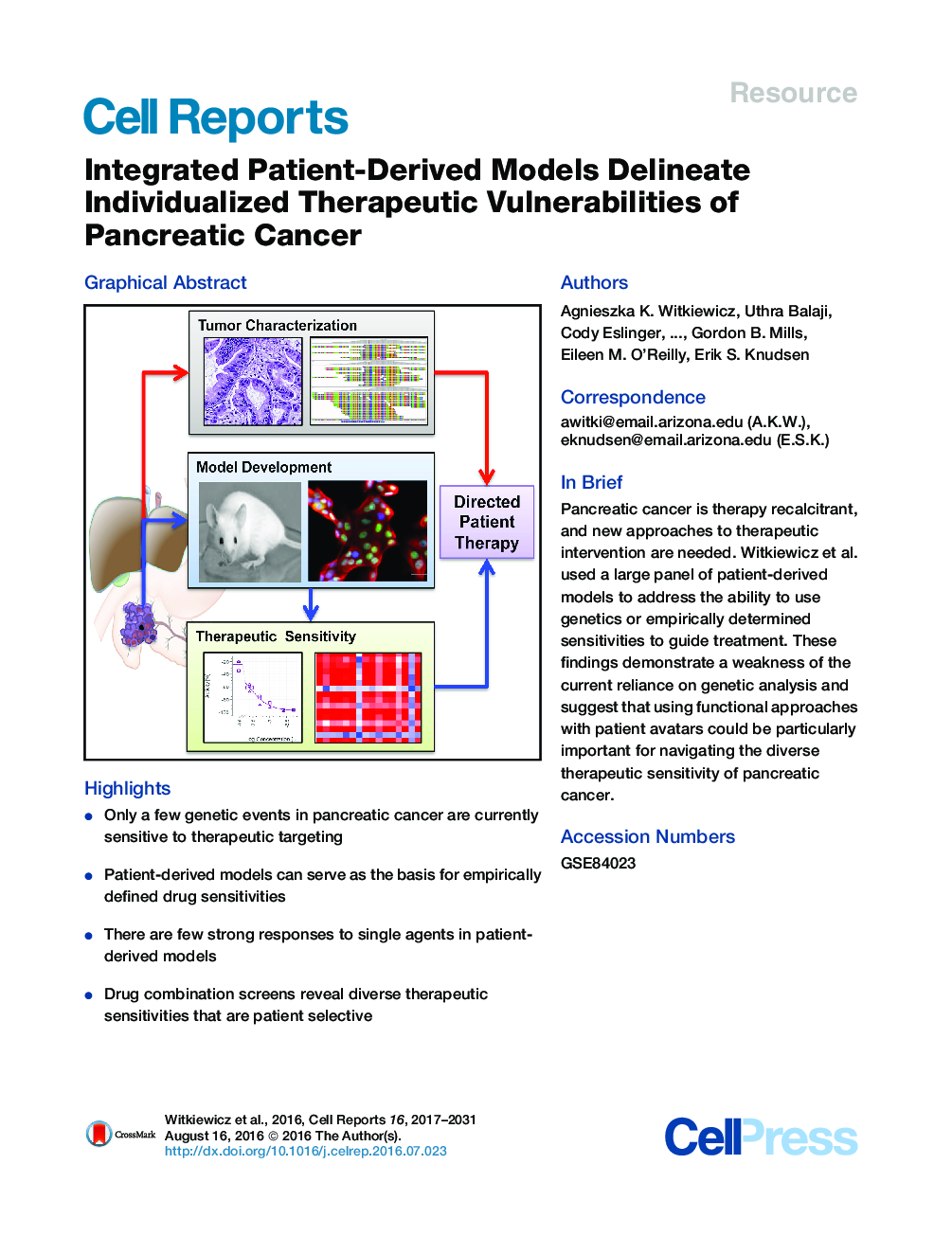| Article ID | Journal | Published Year | Pages | File Type |
|---|---|---|---|---|
| 2039917 | Cell Reports | 2017 | 15 Pages |
•Only a few genetic events in pancreatic cancer are currently sensitive to therapeutic targeting•Patient-derived models can serve as the basis for empirically defined drug sensitivities•There are few strong responses to single agents in patient-derived models•Drug combination screens reveal diverse therapeutic sensitivities that are patient selective
SummaryPancreatic ductal adenocarcinoma (PDAC) harbors the worst prognosis of any common solid tumor, and multiple failed clinical trials indicate therapeutic recalcitrance. Here, we use exome sequencing of patient tumors and find multiple conserved genetic alterations. However, the majority of tumors exhibit no clearly defined therapeutic target. High-throughput drug screens using patient-derived cell lines found rare examples of sensitivity to monotherapy, with most models requiring combination therapy. Using PDX models, we confirmed the effectiveness and selectivity of the identified treatment responses. Out of more than 500 single and combination drug regimens tested, no single treatment was effective for the majority of PDAC tumors, and each case had unique sensitivity profiles that could not be predicted using genetic analyses. These data indicate a shortcoming of reliance on genetic analysis to predict efficacy of currently available agents against PDAC and suggest that sensitivity profiling of patient-derived models could inform personalized therapy design for PDAC.
Graphical AbstractFigure optionsDownload full-size imageDownload as PowerPoint slide
